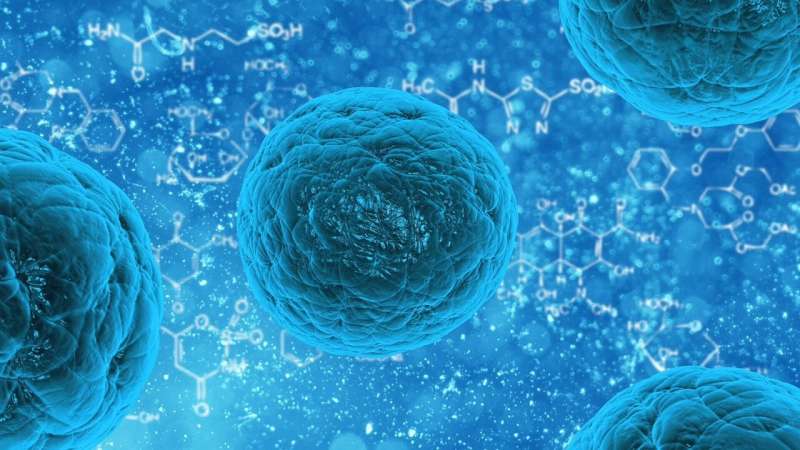This article has been reviewed according to Science X's editorial process and policies. Editors have highlighted the following attributes while ensuring the content's credibility:
fact-checked
trusted source
proofread
Phthalate alternative may harm brain development and health

Growing concerns over the potential health effects of exposure to phthalates, a component of many plastics and also known as a plasticizer, have led to a search for safer alternatives. In a new study conducted in cell cultures, researchers found that the chemical acetyl tributyl citrate (ATBC) might not be the best replacement because it appears to interfere with the growth and maintenance of neurons.
"In the past, industries have promptly shifted away from the usage of toxic chemicals only to produce an equally toxic chemical, so this is something we are actively trying to avoid repeating," said Kyle Sease, a graduate student at Central Washington University in Ellensburg, Washington. "Our study suggests that ATBC, but not other non-phthalate alternatives, could interfere with cells that maintain brain health. We think this finding warrants further testing of ATBC at different doses, in different settings and in whole organism models."
Sease will present the new research at Discover BMB, the annual meeting of the American Society for Biochemistry and Molecular Biology, March 25–28 in Seattle.
Phthalates are used in hundreds of products, often to enhance durability or allow materials to bend and stretch. Studies have shown that phthalate exposure can affect the reproductive system and early development in a range of animals, although the health impacts in humans are not clear. ATBC had emerged as a leading phthalate alternative as companies sought to shift away from phthalates; it is currently used in a variety of materials and products, including food and food packaging.
For the study, researchers grew cultures of neuroblastoma cells, which in terms of growth and division, behave similarly to the glial cells that support and protect neurons in the brain. They then used molecular methods to study how ATBC and other chemicals affect genes and processes involved in cellular division. They found that neuroblastoma cells exposed to ATBC increased their expression of two genes associated with cellular stress (known as Nrf2 and p53) and also increased their production of an enzyme associated with cellular senescence (B-galactosidase), which can cause cells to stop growing and dividing.
The findings suggest that ATBC could interfere with the ability for glial cells to regenerate, which can reduce their ability to protect neural cells and lead to neurodegeneration and accelerated aging. It is also possible that ATBC exposure during early development—when neurons are actively growing and dividing—could affect neurons directly and interfere with brain development, the researchers said. Since neurons do not typically regrow once damaged, any effects on the brain likely would be permanent.
Two other phthalate alternatives, bis (2-ethylhexyl)-1, 4-benzenedicarboxylate (GPO) and dioctyl adipate (DOA), did not show the same effects as ATBC. "We found that two other plasticizers did not appear to affect cell division in these cells, so further understanding the different effects of different plasticizers will allow us to understand better how to make safe ones," Sease said.
More information: Kyle Sease will present this research from 4:30–6:30 p.m. PDT on Monday, March 27, in Exhibit Hall 4AB of the Seattle Convention Center (Poster Board No. 141).





















